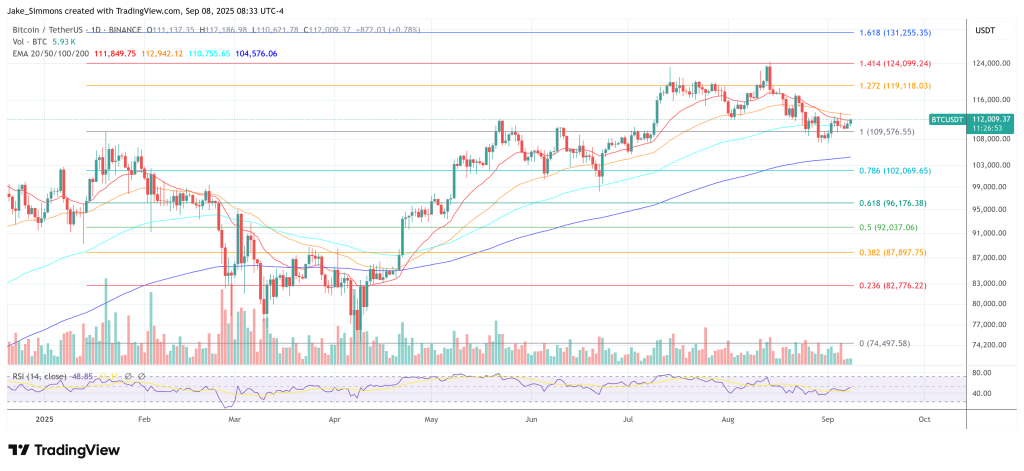A number one determine within the Bitcoin Ordinals motion has threatened to bankroll another model of the reference Bitcoin software program if Bitcoin Core tightens default relay coverage to the detriment of Ordinals and Runes transactions. In an “open letter to Bitcoin Core” posted on September 6, Leonidas — host of The Ordinal Show and a outstanding organizer within the inscriptions ecosystem — warned that “any severe try by Bitcoin Core to tighten coverage guidelines or censor Ordinals and Runes transactions might be met with decisive motion.”
He mentioned that, if obligatory, “the DOG Army will fund the event and upkeep of an open supply fork of Bitcoin Core that strips out almost all coverage guidelines,” including that hundreds would run it “to make it abundantly clear that Bitcoin is and should all the time stay censorship resistant.”
Leonidas framed the dispute as one over the base-layer neutrality. He argued that the Ordinals/Runes economic system shouldn’t be freeloading, claiming it has “contributed over half a billion {dollars} in transaction charges to strengthen Bitcoin’s safety,” and asserted he has spoken “instantly with miners and mining swimming pools representing greater than 50% of Bitcoin’s whole hash charge,” who, he mentioned, will settle for any consensus-valid transactions with aggressive charges if the method is simple.
Bitcoin Core Vs. Knots
The publish lands amid intensifying debate over mempool coverage vs. consensus and forward of Bitcoin Core’s subsequent main launch. The pushback from “monetary-maximalist” voices has been equally blunt.
Blockstream CEO Adam Back reiterated that “Bitcoin is owned by humanity, the protocol builders are stewards, and wish consensus from customers to alter it materially,” including that “bitcoin is about cash, spam has no place within the timechain,” and that the Core shopper’s defaults due to this fact matter. In parallel feedback, Back has questioned whether or not peer-to-peer filters even work in follow to curb the exercise inscriptions critics name “spam.”
Luke Dashjr, maintainer of the Knots implementation and a lead advocate of stricter default coverage, insists the posture shouldn’t be censorship. “No, filters are usually not censorship,” he wrote in a contemporary alternate — a line constant along with his years-long place that nodes might, and infrequently ought to, apply relay filters, whereas miners stay free to incorporate any consensus-valid transaction that pays enough charges. Dashjr has continued to argue for stronger default limits and has inspired operators preferring stricter coverage to run Knots.
Bitcoin shouldn’t be a completed product. We could also be on a detour to deal with spam, and a part of the disaster did originate with (mishandling of) the Segwit and Taproot upgrades – however to enhance the world, we nonetheless want extra performance. Stopping all enhancements endlessly (“ossifying”) is…
— Luke Dashjr (@LukeDashjr) September 8, 2025
At the middle of the dispute is Bitcoin Core v30, scheduled for October, and particularly a set of coverage modifications merged in June that widen the “standardness” aperture for data-carrying transactions.
Core v30 will take away the long-standing default 80-byte cap on OP_RETURN payloads (making the efficient cap the block measurement restrict) and, crucially, will start relaying transactions with a number of OP_RETURN outputs by default — modifications to mempool relay coverage, to not consensus guidelines. Proponents say aligning coverage with what miners truly embody improves charge estimation, reduces reliance on out-of-band submission, and corrects perverse incentives that pushed knowledge into the UTXO set; critics see it as normalizing non-monetary use of block house.
Core builders have publicly articulated the place they draw the road. In a June 6 assertion, signatories together with Pieter Wuille, Gloria Zhao, Greg Sanders and others wrote that Core goals to “make our software program work as effectively and reliably as potential” for validating and relaying transactions and blocks, and that transaction-relay coverage shouldn’t “block … transactions which have sustained financial demand and reliably make it into blocks.”
They warned that knowingly refusing to relay such transactions pushes customers into various submission channels and undermines decentralization — whereas stressing this isn’t an endorsement of non-financial knowledge, merely an acceptance {that a} censorship-resistant system might be used for issues “not everybody agrees on.”
Leonidas, for his half, rejected any normalization of content-based filtering: “There is not any significant distinction between normalizing the censorship of JPEG or memecoin transactions and normalizing the censorship of sure financial transactions by nation-states. Both would set very harmful precedents.” He additionally claimed that “over twenty Bitcoin startups that function economically related nodes … would welcome the expanded design house” if nodes have been required solely to comply with consensus guidelines quite than “arbitrary coverage restrictions.”
The governance backdrop issues. Bitcoin Core shouldn’t be Bitcoin, and customers select which software program to run — a degree either side invoke. In sensible phrases, the market is already voting with its node software program: in line with Coin.Dance, Knots has gained large momentum and now accounts for 4,373 of 23,729 publicly reachable nodes — simply over 18% — up sharply in current months because the relay-policy struggle has intensified.
At press time, BTC traded at $112,009.

Featured picture created with DALL.E, chart from TradingView.com

Editorial Process for bitcoinist is centered on delivering totally researched, correct, and unbiased content material. We uphold strict sourcing requirements, and every web page undergoes diligent evaluation by our staff of prime know-how specialists and seasoned editors. This course of ensures the integrity, relevance, and worth of our content material for our readers.









